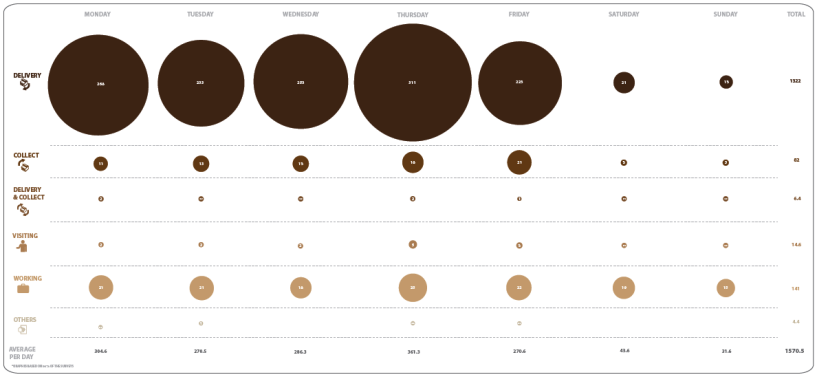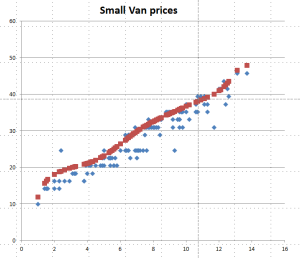One of the team sent me a video from TED in which Kevin Slavin talks about the importance of algorithms in everyday life. Here it is!
An interesting aspect of our business is around the reality is that it is very inefficient industry – there is fragmented and disparate demand and supply, vehicles are empty, there are relatively low asset utilisation rates and pricing can be quite all over the place.We did quite a lot of work around urban freight which helped us to highlightsome of these disconnects – the graph below is part of a study that we did into understanding the baseline impact of freight deliveries to multi-tenancy commercial properties in London (you will need to click on the picture to see the detail). Ultimately what it shows is that each day there are hundreds of journeys to deliver a single item or set of items to one company – all via a single, very congested road in London. A more collaborative approach would allow different businesses to get delivery journeys shared quite easily, thus reduce cost, congestion and carbon. While many people may not care too much about carbon, these heavily congested situations will be very problematic during the Olympics in a few short months.
To address this, we use maths to find ways to create some logic in this whole situation, and in doing so, start to find a way of ordering a range of very random ‘events’. In many respects, this start with coming up with certain hypothesis that allow us to consider the situation in which a user might be in and then try and construct a mathematical way of capturing that and solving the pain point. While I am not going to really discuss the core of what we do, I thought this graph below might be interesting which was done for me by an awesome intern doing Mathematics at Berkeley. In this example, we were trying to look at a standardised per mile pricing structure so we used a polynomial equation to come up with a potential answer.

